We Tried to Bring Food Into Gaza—but Israel Blocked and Arrested Us
As Israel continues to starve the people of Gaza, a delegation of rabbis marched toward the Erez Crossing during Passover carrying sacks of flour and demanding a cease-fire.
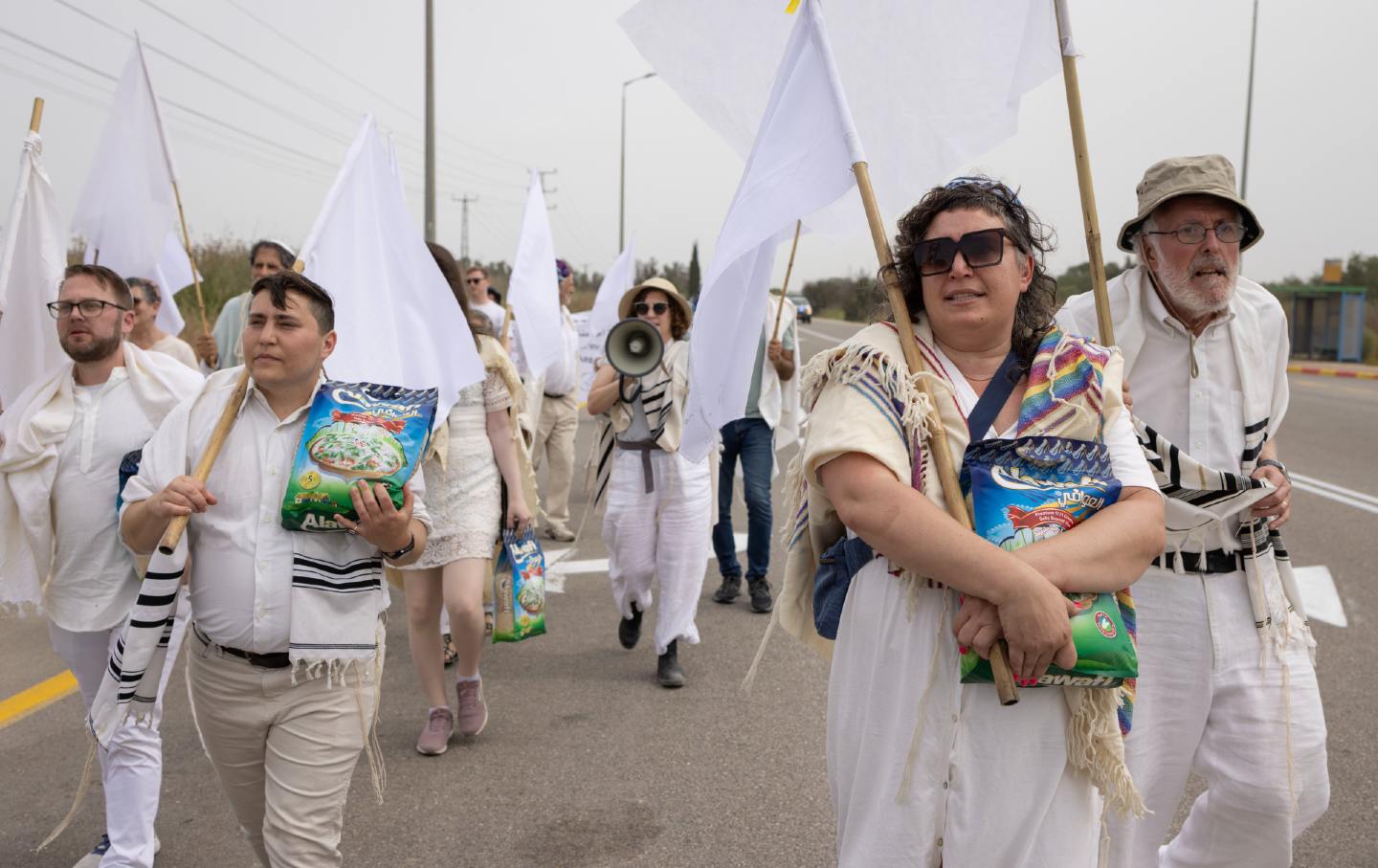
In 2017, I spent several days in Gaza as a staff person for the American Friends Service Committee. Although I took away many powerful and vivid memories from that trip, some of the most indelible involved the delicious food that was continuously served to us by our Gazan hosts. Gazans are famously proud of their cuisine, and rightfully so, as it provides them with a palpable connection to Palestinian history and life outside that small 140 square-mile strip—to communities in Palestine where their ancestors used to live. As journalist Laila El-Haddad has observed, Gazan food is “a sort of treasure map to a largely invisible, or invisibilized, world of Palestinian history going back well before the 1948 Nakba.”
During the course of our visit, Ali, a member of the AFSC Gaza staff, mentioned more than once that Gazan knafeh (a traditional Arabic dessert) was by far the best in Palestine. When our staff group gathered at a restaurant in Gaza City for our final meal, Ali was chagrined to learn that there was no more knafeh left in the kitchen. Determined, he got up, ran down the street to another restaurant, and returned with a huge round plate of the sticky, golden pastry for our table. It was indeed more delicious than any knafeh I have eaten before or since.
I’ve recalled that sweet memory often over the past seven years. When I think of it now, however, I find its sweetness has curdled into horror. As far back as December, human rights agencies determined that Israel “was using starvation as a weapon of war.” According to the World Food Program, Gaza’s food system was on the brink of collapse and the population was facing a “high risk of famine.”
This past March, the mainstream media published shocking, heartbreaking pictures of Yazan Kafarneh, a 10-year-old Gazan boy reduced to skin and bones from starvation. To date, it has been estimated that 28 children have died of malnutrition and starvation in northern Gaza. By all accounts, starvation in the besieged Strip has now reached “catastrophic” proportions. Palestinians in Gaza are now forced to eat grass just to survive.
As a congregational rabbi, I spoke with many people who told me that they were not sure how—or even if—they would celebrate Passover this year. With the genocide and forced starvation of the people of Gaza deepening with no end in sight, they said it felt beyond challenging to celebrate a festival of Jewish liberation. To make the moral dissonance even more dissonant, many in the Jewish communal establishment framed the meaning of this year’s Passover exclusively around the plight of the Israeli hostages in Gaza and the call for their liberation from Hamas, with nary a mention of the 35,000 Gazans who have been killed by Israel’s genocidal vengeance.
More than once I was asked, “How can I partake of this festive meal while Israel has been starving Palestinians in the name of the Jewish people? How can I read about Pharaoh’s oppression of Israelite children when I’ve just read the latest death count of Palestinian children dying increasingly things from forced starvation?”
As a political-spiritual response to this unprecedented Passover moment, Rabbis for Ceasefire—a group of rabbis and rabbinical students who came together last October to demand an end to the violence—began to organize an action at the Gaza border. Motivated by Passover’s central imperative—“All who are hungry come and eat!”—our mission was to bring food supplies to the Erez Crossing and demand that Israel allow us to pass through. Our action included 10 American rabbis, writer Ayelet Waldman, and 30 Israeli activists—including Israeli rabbis—who have been tirelessly protesting both at the Gaza border and organizing protect presence for West Bank communities targeted by settler violence.
On April 26, we gathered at a preplanned meetup location, with a truck filled with half a ton of flour. We each shouldered bags of rice and, carrying banners and flags, marched in the direction of the Erez Crossing. The Israeli police quickly drove up to intercept us. During that initial stand-off, several of us offered statements.
I began with an opening prayer, an adaptation of the “Magid” section of the Passover Haggadah, when Jews retell the story of the Exodus: “This is the bread of affliction, the bread and food systemically, cruelly denied the people of Gaza. Let all who are hungry come and eat. Let all who are oppressed be liberated this Pesach. Now, we are here—tomorrow, let there be bread for Gaza. Now, we are here—next year, may there be liberation from the river to the sea!”
Other speakers included Israeli Rabbi Avi Dabush of Rabbis for Human Rights, a resident and survivor of a kibbutz that was attacked on October 7, and Noam Shuster-Eliassi, a well-known Israeli activist, writer, and comedian. When our program was over, we pushed forward toward the border. When the soldiers violently attempted to break us up, several of us sat down in the road. During the course of the protest seven of our group—four Americans and three Israelis—were arrested.
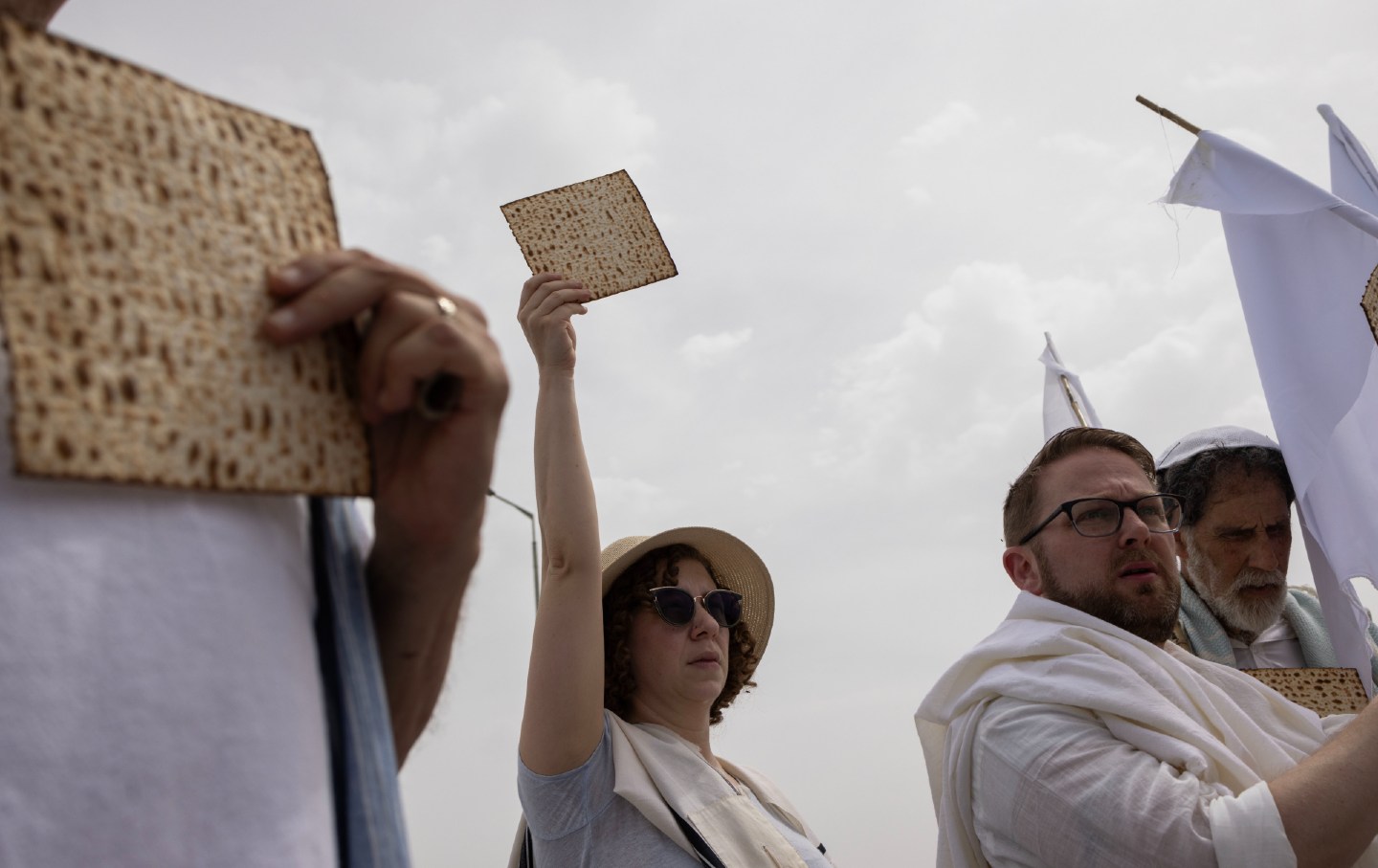
All of the arrested were fully prepared for this eventuality (the Israelis were veterans at protest arrests and had briefed us on protocol). They were taken to two detention centers and interrogated for eight to nine hours. The Americans were told, bluntly, that they were being held for “attempting to bring food into Gaza.” All the arrested were released that evening. Thankfully, the food we attempted to bring into Gaza was not confiscated, so we were able to donate it to Masafer Yatta—a community in the South Hebron Hills where almost 3,000 residents are resisting the daily threat of demolitions, evictions, and dispossession.
Now that many of us are back in the United States, we are not ready to stop sounding the alarm about the atrocities Israeli is committing in Gaza, not ready to stop pressing for a cease-fire and the flow of food once again into Gaza. As it is, nearly 2.2 million Palestinians in Gaza currently face mass starvation and encroaching famine. Hundreds of trucks filled with humanitarian goods have been sitting idle on roads leading into the Rafah crossing on the border with Egypt, blocked from entering Gaza by a draconian inspection process that severely limits the number of trucks that can pass through. Inside Gaza, the Israeli military has attacked efforts to distribute aid with tragic results. According to the United Nations, the Israeli military has killed 196 relief workers, while soldiers have shot and killed hundreds of Gazans venturing out to seek food.
Amid all this horror, the one agency that has the capacity and infrastructure to effectively distribute relief to the people of Gaza, the United Nations Relief and Works Agency (UNRWA), has been defunded by the Biden administration. This past January, the Israeli government leveled the still-unsubstantiated claim that 12 UNRWA employees were involved in Hamas’s October 7 attacks in Israel. Though UNRWA immediately fired the employees in question and launched an investigation, the US withdrew its financial support of the agency, which was founded in 1949 to provide support to the hundreds of thousands of refugees created by the establishment of the state of Israel.
In its spending bill this past March, the US government extended its ban on UNRWA funding for a year. Though the agency reports it has sufficient funds to operate until the end of May, its ability to provide services in Gaza has been dangerously hampered. Last month, Israel announced that it would no longer approve UNRWA food convoys to the north of Gaza, where famine is the most imminent. According to a recent report, the agency noted that “a total of 420 food trucks were denied or impeded by Israeli authorities [inMarch].” It warned: “Gaza is on the brink of famine, with 1.1 million people—half of its population—experiencing catastrophic food insecurity due to the intense conflict and severe restrictions on humanitarian access.”
Most ominously, Israel continues to amplify its threats to invade Rafah, where some 1.4 million people are currently living, many of them refugees from elsewhere in Gaza. An invasion would almost certainly result in massive human suffering and tragedy.
Popular
“swipe left below to view more authors”Swipe →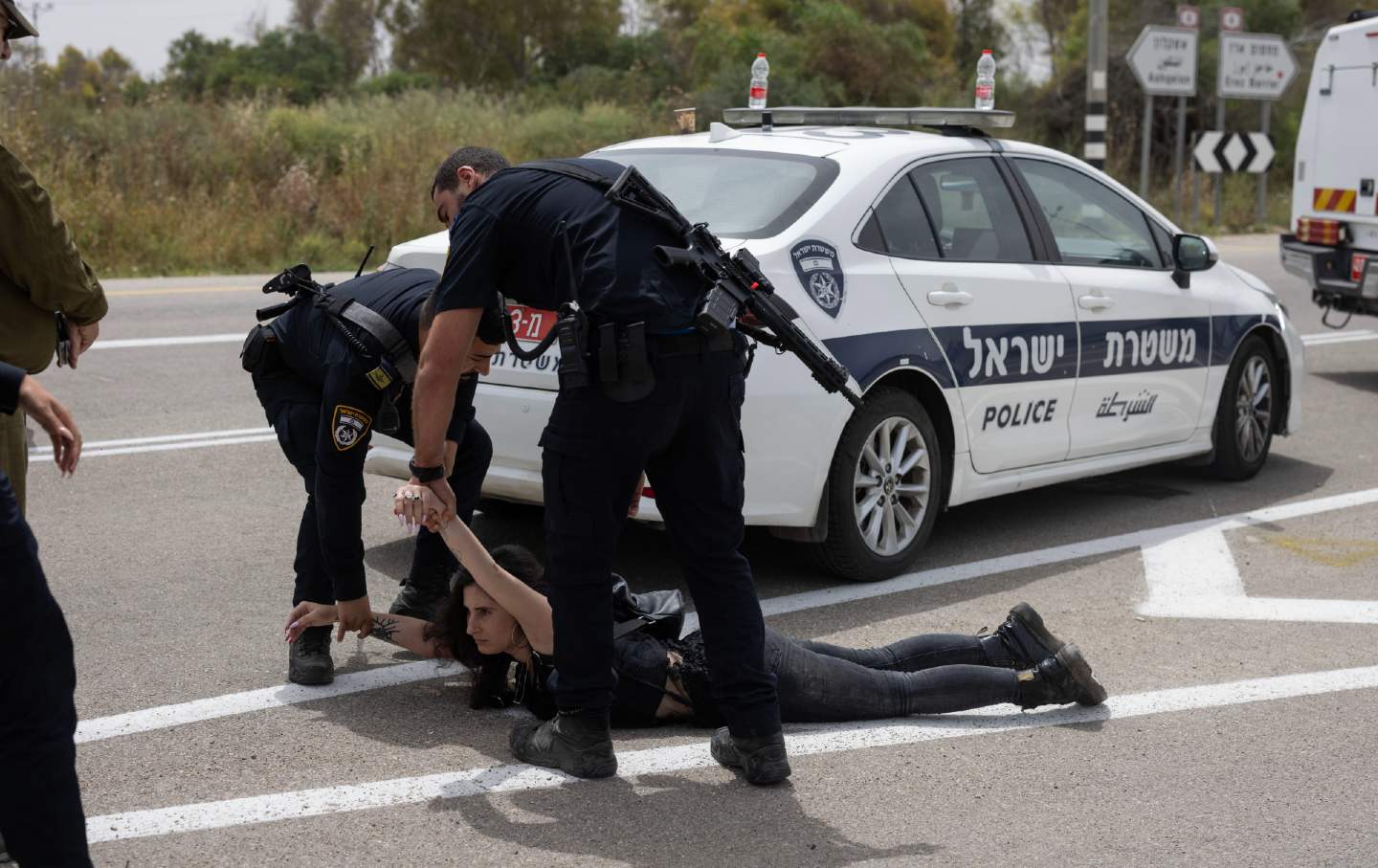
And yet, in the wake our action on the border, I continue to hold out hope. It is clear to me that our border protest was part of something much larger: the dramatic rise in Palestine solidarity increasing around the world, including the growing student protest movement on campuses across the United States. And I am more convinced than ever that Israel cannot, try as it might, starve or bomb the Palestinian people from existence, nor can it destroy the love for their culture that is so deeply rooted in their homeland: In the words of El-Haddad: “Lately, I’ve been thinking about what I would go back to, and what I would find, if I returned to Gaza. Most of the landmarks have been destroyed. Gone too are many of the people I cherished. But…it feels like I am the torchbearer now, the family’s keeper of treasured recipes. Like Um Hani [Leila’s aunt, who was killed in an Israeli air strike], I will cook and I will teach, connecting the next generation of Palestinians to our homeland.”
Can we count on you?
In the coming election, the fate of our democracy and fundamental civil rights are on the ballot. The conservative architects of Project 2025 are scheming to institutionalize Donald Trump’s authoritarian vision across all levels of government if he should win.
We’ve already seen events that fill us with both dread and cautious optimism—throughout it all, The Nation has been a bulwark against misinformation and an advocate for bold, principled perspectives. Our dedicated writers have sat down with Kamala Harris and Bernie Sanders for interviews, unpacked the shallow right-wing populist appeals of J.D. Vance, and debated the pathway for a Democratic victory in November.
Stories like these and the one you just read are vital at this critical juncture in our country’s history. Now more than ever, we need clear-eyed and deeply reported independent journalism to make sense of the headlines and sort fact from fiction. Donate today and join our 160-year legacy of speaking truth to power and uplifting the voices of grassroots advocates.
Throughout 2024 and what is likely the defining election of our lifetimes, we need your support to continue publishing the insightful journalism you rely on.
Thank you,
The Editors of The Nation
More from The Nation
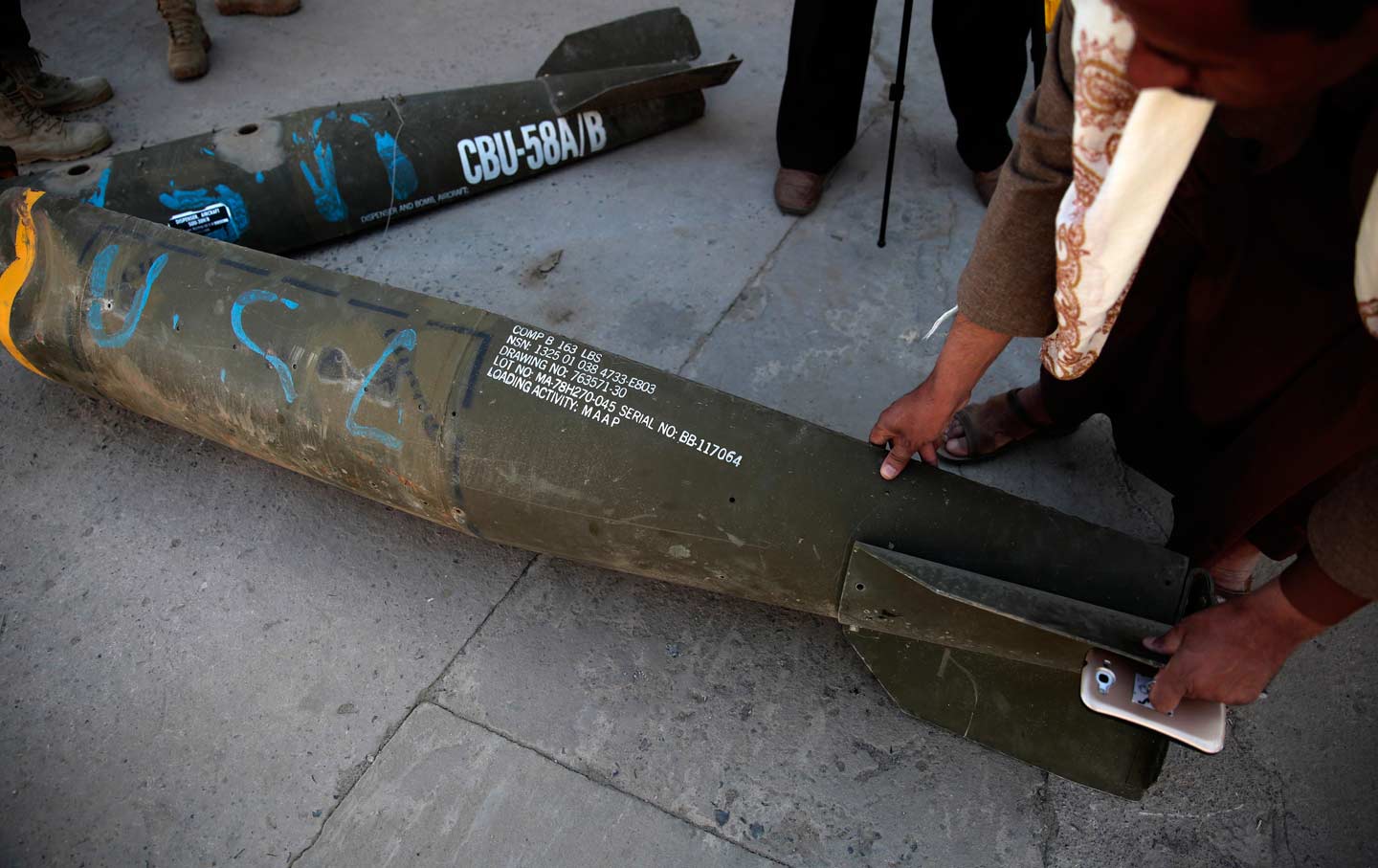
The Remnants of War Are Killing People in Times of Peace The Remnants of War Are Killing People in Times of Peace
Unexploded ordnance makes the terror of war linger after the wars themselves are in the history books.
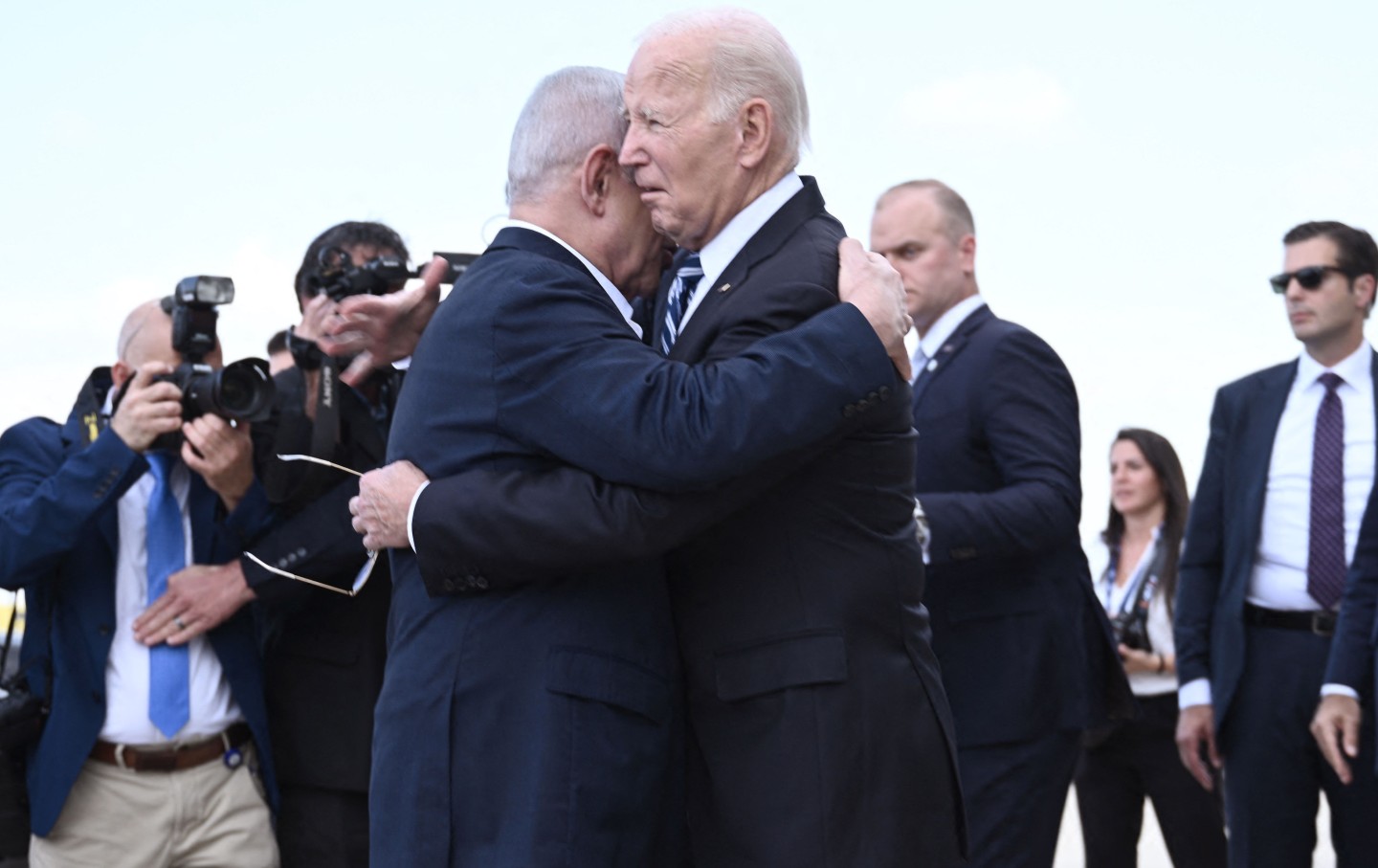
American Influence in the Middle East Is Evaporating Before Our Eyes American Influence in the Middle East Is Evaporating Before Our Eyes
Washington’s efforts in the Middle East have been profoundly undermined by its breathtaking hypocrisy.
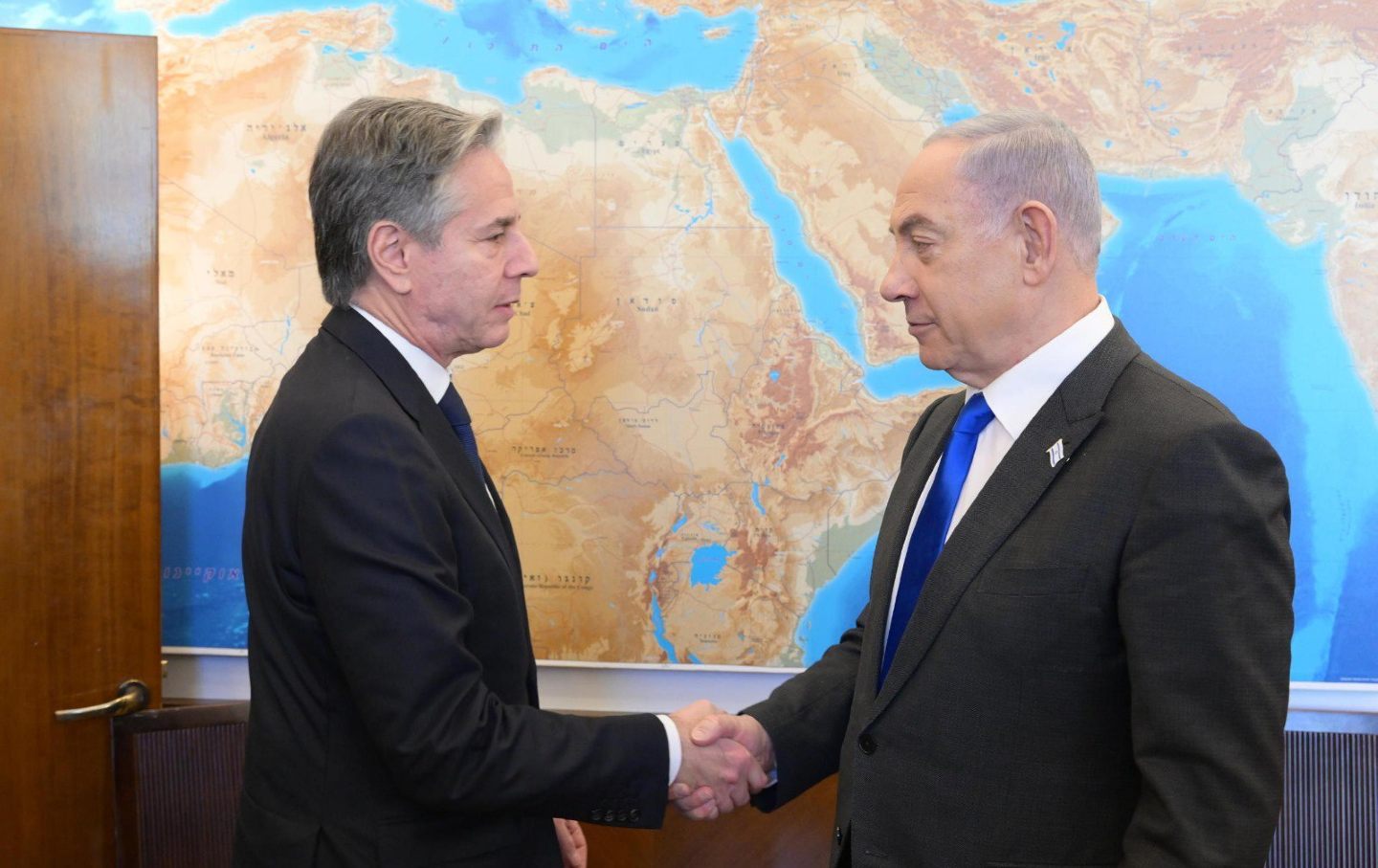
Yes, Antony Blinken Should Resign. But He’s Not the Only One. Yes, Antony Blinken Should Resign. But He’s Not the Only One.
The secretary of state reflects the broader disaster of Biden’s Middle Eastern policy.

The Ayotzinapa Disappearances, 10 Years Later The Ayotzinapa Disappearances, 10 Years Later
September 26 marks ten years since 43 students from the Ayotzinapa Teachers College were forcibly disappeared in Guerrero, Mexico. Their families continue the fight for truth and j...
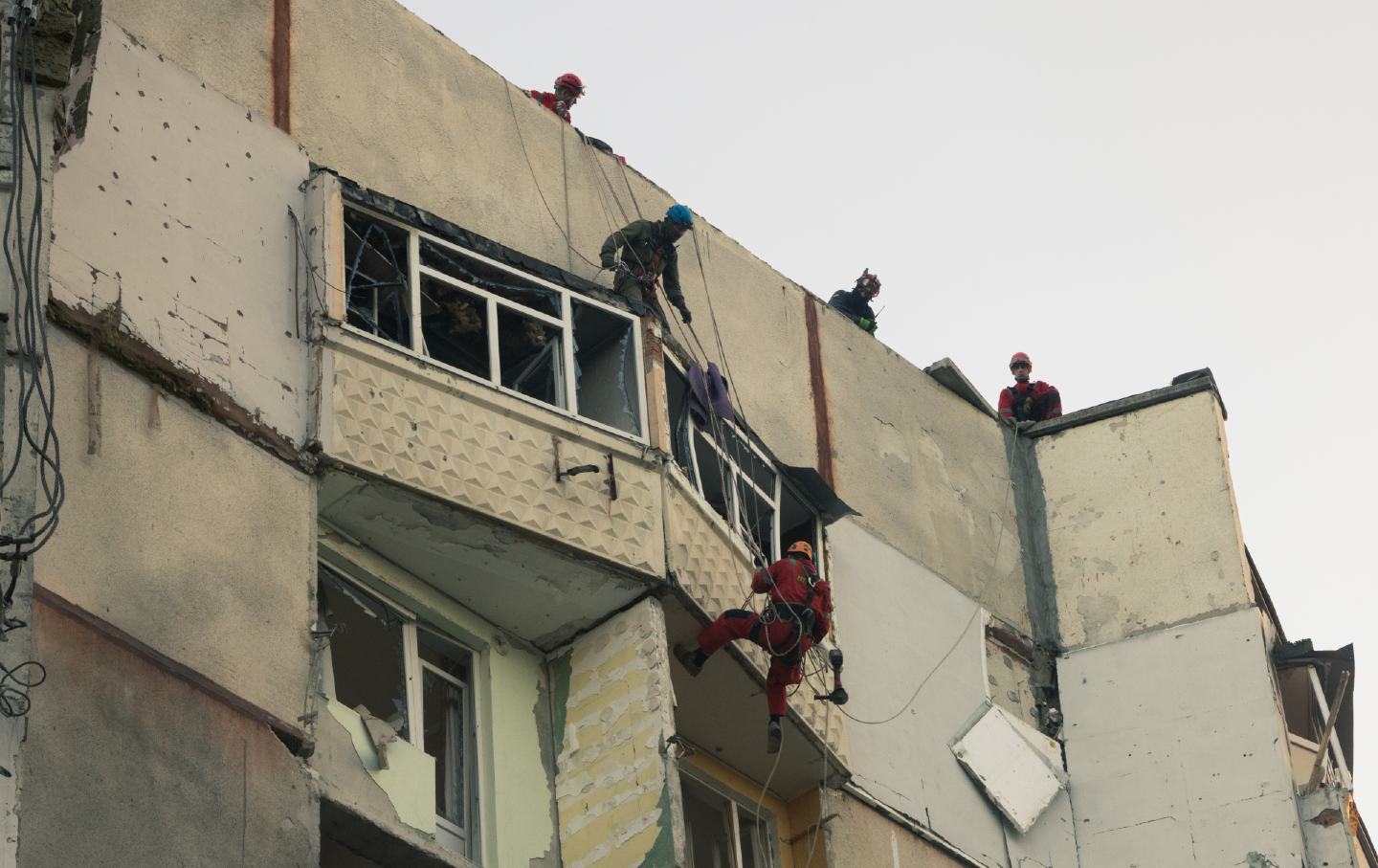
The Claim That Russia Doesn’t Possess Any Solid Red Lines—or Won’t Enforce Them—Isn’t Supported by Evidence The Claim That Russia Doesn’t Possess Any Solid Red Lines—or Won’t Enforce Them—Isn’t Supported by Evidence
Any policy debate on war must reckon with escalatory dynamics.
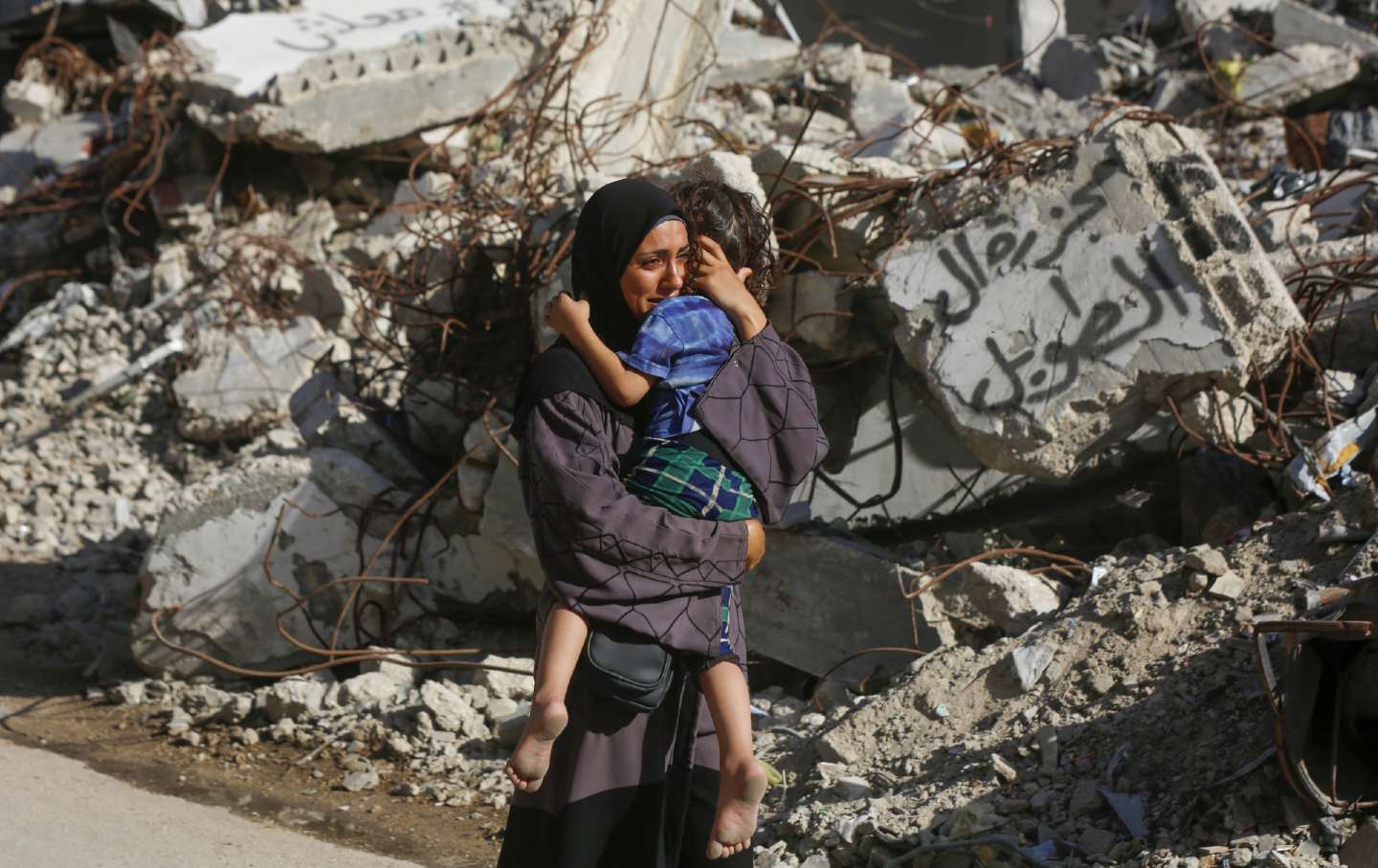
October 7, One Year Later October 7, One Year Later
Palestinians and Israelis on 365 days of slaughter, devastation, grief, and resistance.


